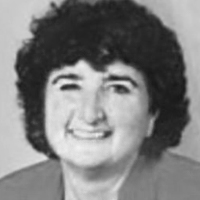This text-based course is a transcript of the webinar, “Oral Care with Dementia Patients - Dealing with Care-Resistant Behaviors,” presented by Angela Mansolillo, M.A., CCC-SLP, BCS-S.
>> Angela Mansolillo: We are going to take on this issue of oral care with dementia patients who are often resistant to our efforts. There are a lot of reasons we have trouble getting good oral care programs in place in our facilities. One of the reasons for these care-resistant behaviors is that we see patients with cognitive impairment. Our goal for today is to talk about the oral care imperative, strategies for oral care assessment, and intervention strategies for these patients of ours who are often resistant to our efforts.
The Oral Care Imperative
The reasons for good oral care in our patient populations are clear and have been well documented. We know that good oral care has a lot of very positive benefits. It helps to get rid of bacteria. It improves swallow function, because it has the potential to improve oral control of the bolus. It increases salivary flow, which also impacts oral bolus management. It can increase level of alertness and appetite. It also has an impact on our patients’ overall health and immune system function, specifically as that relates to their risk of all types of pneumonias, including aspiration pneumonia.
Pneumonia Statistics
Pneumonia is a huge problem in our elderly population. In a study that was published a couple of years ago (Parks Thomas et al, 2012), they looked at Medicare beneficiaries from 2005 to 2007 who got pneumonia. The cost is considerable. There are the costs of the acute care while the patient is hospitalized. These patients had higher healthcare costs even following the pneumonia. Pneumonia has some long-term consequences in many of our very frail elderly patients. This study showed there were $87 billion a year in Medicare costs.
Oral Flora and Oral Health
The issue is the bugs in our mouth. We all have oral pathogens, or flora, in our mouths. This colonization is very normal and there are a number of good bacteria in our mouths that help to kill the bad bacteria and keep our immune system functioning in a very healthy way.

